Quarantine changes help Cathay Pacific, but real gains remain elusive
Cathay Pacific's reliance on international services has meant the airline's network recovery has lagged compared to most other Asia-Pacific airlines. Another factor is that the Hong Kong government imposed some of the region's strictest quarantine restrictions on both passengers and crew.
However, moves by the government to ease certain quarantine and border rules are helping the airline restore more of its services.
While other parts of the world, such as Europe, begin to show signs of opening up again, little progress is being made in the Asia-Pacific region in rebuilding international travel. Vaccination programs have tended to be slower in Asia-Pacific countries, and new waves of COVID-19 - with more infectious strains - have wiped out many of the gains made by many countries and airlines.
Hong Kong saw a surge in infection numbers in late 2020 and early 2021, but has managed to reduce case numbers to very low levels over the past several weeks.
However, there are many nearby examples of Asian countries that have also had COVID-19 largely under control, only then to experience new outbreaks related to international travel. Hong Kong is anxious to prevent this occurring, so it has been very cautious with its own approach. Nevertheless, it has still been able to reduce quarantine periods to match the lower risk in certain markets.
TO READ ON, VISIT: Quarantine changes help Cathay Pacific, but real gains remain elusive
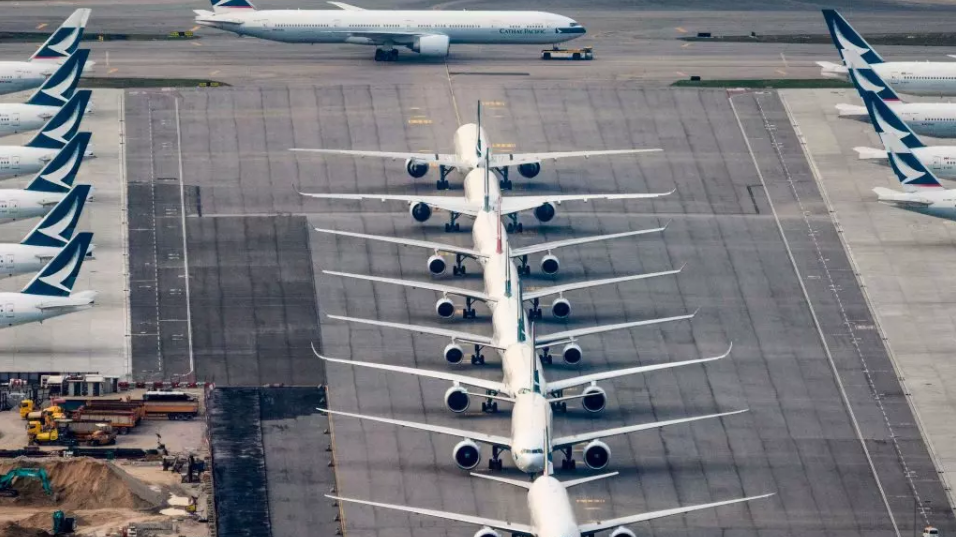
European airlines: travel restrictions threaten summer peak cash flow
Both capacity and traffic data show the impact of changes in travel restrictions in Europe. Most recently, the expansion and contraction of the UK's green list - specifically the addition and then removal of Portugal - is clearly visible in capacity data.
Seat capacity in Europe is 59.5% below 2019 in the week commencing 7-Jun-2021, almost the same as the previous week after six weeks of a clear improvement. Europe remains below the other regions on this metric.
Middle East seat capacity is down by 54.4% versus 2019, Africa is down by 48.8%, Asia Pacific by 41.3%, Latin America by 36.8%, and North America by 27.3%.
Weekly passenger data from ACI Europe are only available up to the final week of May-2021. Nevertheless, this week's capacity data - coinciding with Portugal's removal from the UK green list - suggest that the previously improving trend of passenger data will also pause, or even reverse.
Moreover, Europe's airlines suffered the most negative cash flows in 1Q2021 (source: IATA). There is a real risk that this underperformance will continue into the European summer peak if travel restrictions do not relax.
TO READ ON, VISIT: European airlines: travel restrictions threaten summer peak cash flow
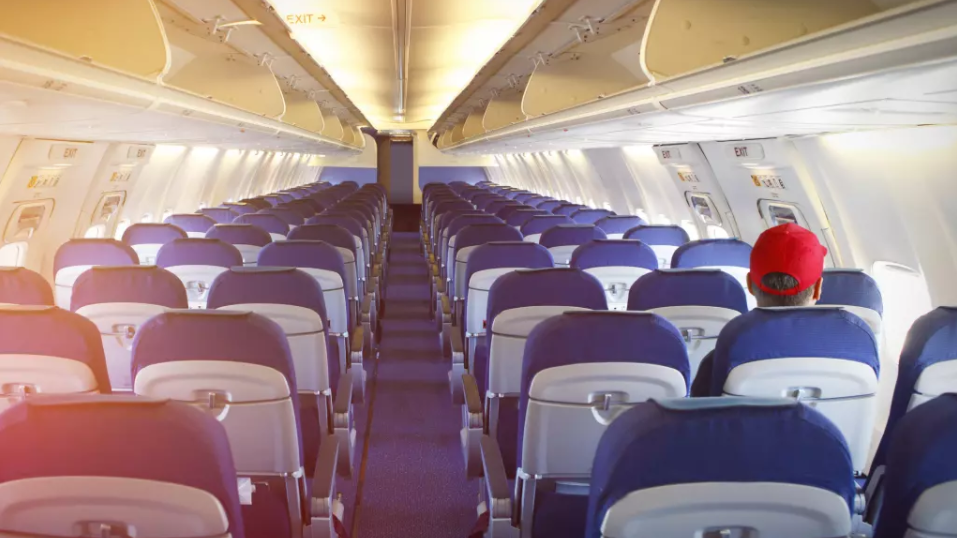
US aviation: is there an airline share shift afoot?
US low cost and ultra-low cost airlines continue to believe that they are the most favourably positioned to capitalise on the recovery in domestic and near international leisure demand as passengers numbers in that segment continue to grow.
But United Airlines has a different view. The airline believes that the playbook low cost operators used in past crises is outdated. United has concluded that larger US airlines won't shrink dramatically in the US market, and won't create opportunities for low cost airlines to take share.
The only certainty is the uncertainty about the way the US domestic market will evolve as the recovery continues, but airlines operating all business models believe they can thrive as a new reality unfolds.
TO READ ON, VISIT: US aviation: is there an airline share shift afoot?
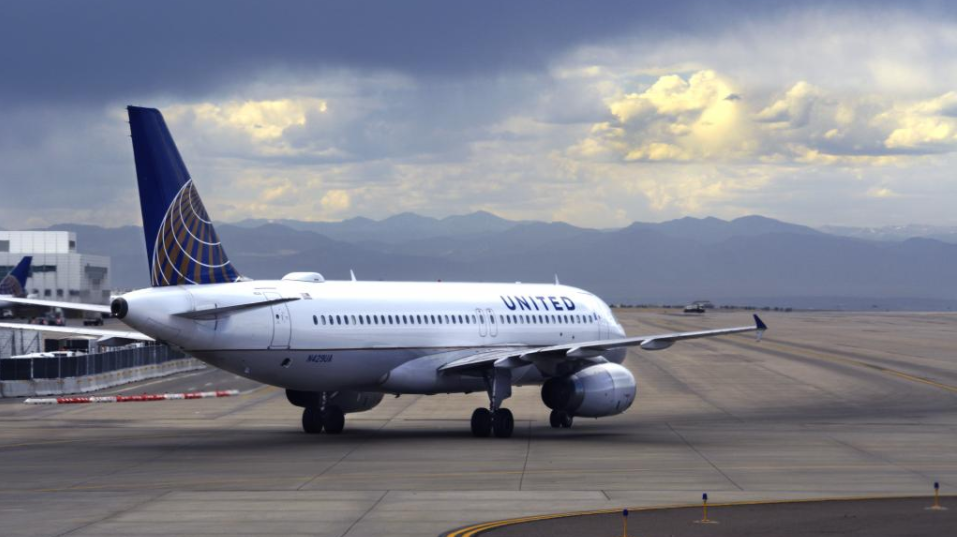
European airlines: 3Q2021 capacity over 50% of 2019 would be positive
One month before the start of 3Q2021 - peak summer for Europe - seat capacity for the quarter is at 74% of 2019's (based on OAG schedules and CAPA Fleet Database seat configurations). This would be a very rapid recovery from 1Q2021 (27%) and 2Q2021 (34% projected with one month left).
Seat capacity in Europe is 59.9% below 2019 in the week commencing 31-May-2021. This continues the positive trend into a sixth successive week, during which the rate of fall has narrowed by 13.7ppts. This is Europe's slowest rate of decline versus 2019 since Sep-2020.
Europe is narrowing the gap to the other regions: Middle East seat capacity is down by 54.4% versus 2019, while Africa is down by 49.1%, Latin America by 38.0%, Asia Pacific by 37.4%, and North America by 30.0%.
In previous quarters during the coronavirus pandemic capacity has fallen by approximately a half from one month out to the eventual outcome.
Of course, 3Q2021 seat count will be driven by progress on travel restrictions. However, extrapolation of the pattern of previous quarters suggests that 3Q2021 capacity at more than 50% of 2019 would be a positive outcome.
TO READ ON, VISIT: European airlines: 3Q2021 capacity over 50% of 2019 would be positive

SAS to consolidate activities at Copenhagen Airport hub?
It is rare, anywhere, for a 'country' of 20 million people to have three gateway/hub airports.
That is essentially what Denmark, Norway and Sweden - all historically connected, once part of a union, and with a common passport for all three - collectively offer, and in competition with each other for the business of the tri-national airline, and others.
But the new paradigm set by the pandemic demands a review of historical agreements such as this while all airports strive merely to exist. The first mover in this instance is Copenhagen Airport, which was easily the most aggressive before the COVID-19 pandemic and whose CEO perceives a change of emphasis in SAS towards consolidating business at one airport - most likely meaning intercontinental business.
This report looks at what that would mean for CPH and the other airports in Scandinavia.
TO READ ON, VISIT: SAS to consolidate activities at Copenhagen Airport hub?
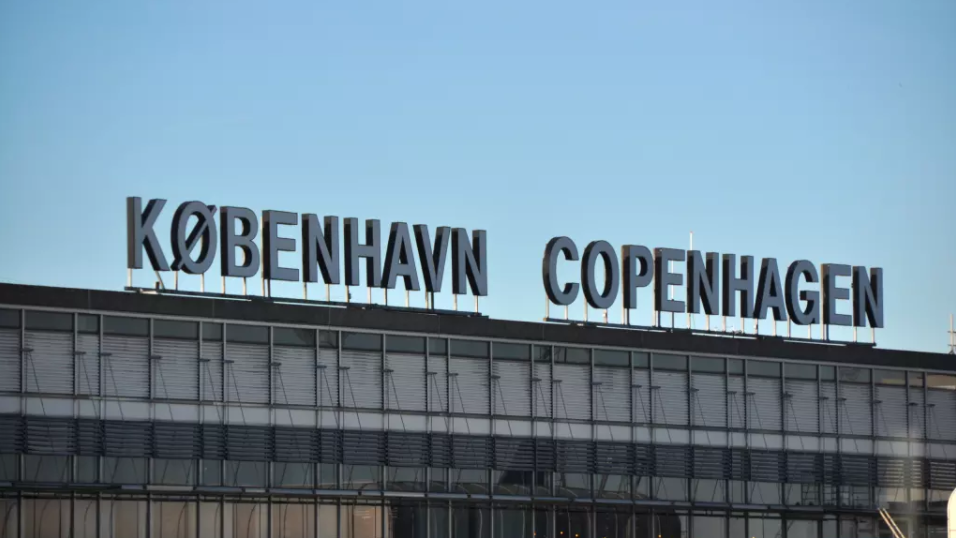
Hong Kong Airport Authority sets out ambitious, cargo-driven vision
Before the pandemic the Airport Authority Hong Kong (AAHK) had committed (though not without a fight) to the provision of a third runway at Hong Kong International Airport - a very expensive project. Another 18 months later, there are no certainties any longer as to how the industry will develop.
But AAHK is sticking to its original plan of extending an existing airport city, along with terminal improvements and the third runway. Where it has deviated a little latterly is that it is trying to hitch itself increasingly to the needs of the Greater Bay Area, which includes heavily populated areas of mainland China. That is why it wants a bigger share of Zhuhai Airport.
If it succeeds in this collective scheme it will become an important regional Chinese airport, which will give it some advantages over its challenging peers in the region.
But it could all be undone by political developments over which it can exercise no control whatsoever.
TO READ ON, VISIT: Hong Kong Airport Authority sets out ambitious, cargo-driven vision

Fraport: more than half 2021 earnings from overseas businesses
Fraport is a bellwether for the airports industry generally, so it is gratifying to read a slightly optimistic tone in the Annual General Meeting report given by its Executive Board Chairman.
While the going remains tough in Europe, the tough have got going with the third terminal at Frankfurt Airport, which, although it has been scaled back a little, will at least partly open in 2026.
Financially, the Fraport balance sheet is sound, but revenues are depressed and profits remain no more than an aspiration, hopefully to be revealed at the end of 2021 if the industry does succeed in opening up again.
That will depend probably more on the non-German airport assets because operating restrictions are not as severe in most countries, and in Russia the main St Petersburg airport has already reached a point where capacity, even if it is mainly domestic, is exceeding that of 2019.
Perhaps the biggest surprise, given that environment pressures will soon return, is that Fraport is seemingly cool on when it will become 'carbon-neutral', opting for a date well beyond that of many of its peers.
That might augur well for the entire sector, which could be over-committing itself with environmental policies when it has yet to dig itself out of a pandemic-induced trough that has cost the USA, for example, an entire year's worth of GDP - USD20 trillion.
TO READ ON, VISIT: Fraport: more than half 2021 earnings from overseas businesses
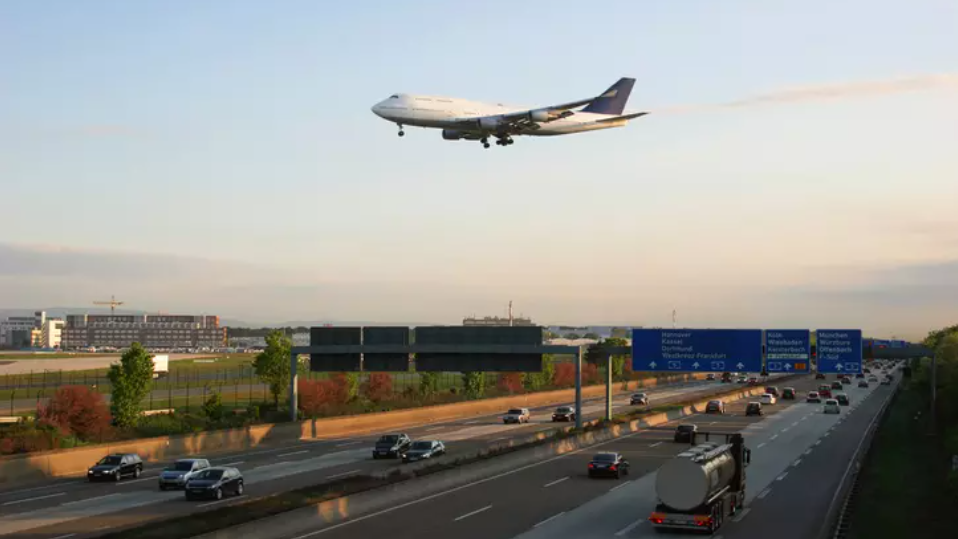
Men of Harlech - Cardiff Airport fights back from the dead, again
The airport serving a capital city, anywhere, could be expected to be a bustling place in normal times. After all, even Tirana's Rinas airport managed more than 3.3 million passengers in 2019. In Cardiff's case it was half of that amount and in 2020, pummelled by the pandemic, it dropped to just 200,000 passengers.
But Cardiff has learned to struggle against adversity as airlines have failed, and in the face of stiff competition from aggressive airports in England.
Now, with the pandemic not so acute, with travel restrictions easing, new airlines, new route opportunities, the potential return of two key airlines, a new way of looking at the air transport business and a sound financial position - a more promising future beckons than perhaps has been the case before.
The question is, can the airport, like the iconic Owain Glyndŵr of the 15th century who defended Harlech Castle against the English King Henry V, rise to the occasion?
TO READ ON, VISIT: Men of Harlech - Cardiff Airport fights back from the dead, again
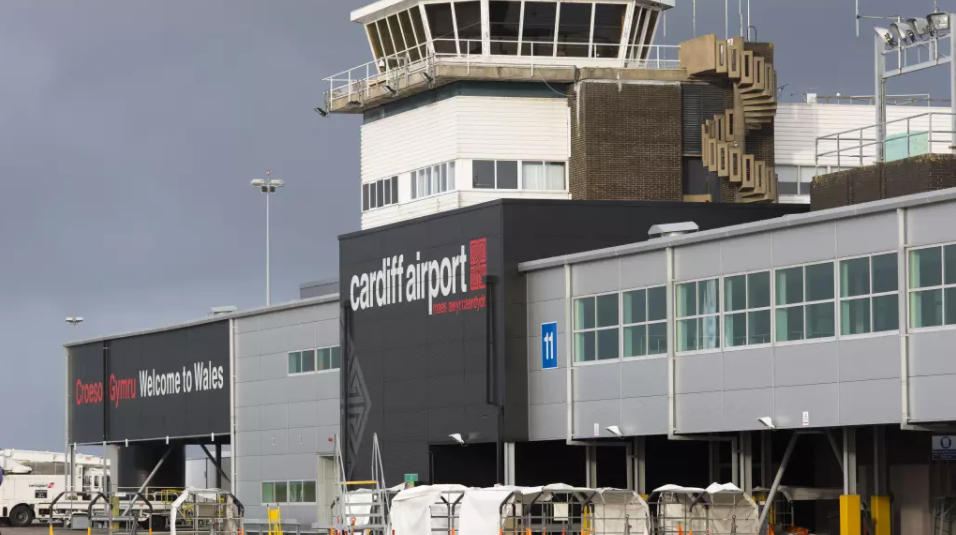
SPECIAL REPORTS: Aviation Sustainability and the Environment
This regular weekly CAPA report features a summary of recent aviation sustainability and environment news, selected from the 300+ news alerts published daily by CAPA. This week's issue includes: United Airlines signs agreement with Boom Supersonic to purchase 'Overture' airliners; Delta Air Lines launches 'Flight to Net Zero' initiative; Widerøe remains hopeful about Rolls-Royce electric aircraft amid fleet overhaul plan: CEO; London Heathrow Airport incorporates SAF into main fuel supply; Agoda: COVID-19 pandemic has negatively impacted attitudes to sustainable travel.
TO READ ON, VISIT: SPECIAL REPORTS: Aviation Sustainability and the Environment
